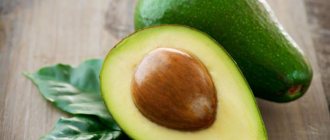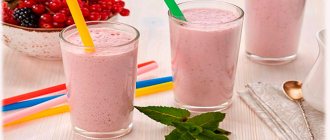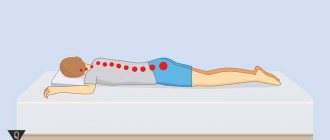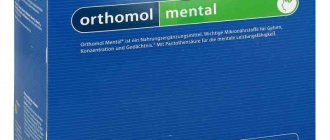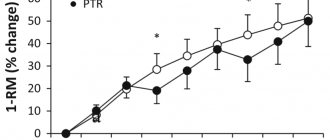The brain is the most important human organ. It is responsible for the proper functioning of all organs and systems of the body.
Consists of two hemispheres (right and left), the cerebellum and the brain stem. It is represented by two types of cells: gray brain cells and neurons - white nerve cells.
This is interesting:
- The brain's processing speed is much faster than the average computer.
- A three-year-old child has three times more nerve cells than an adult. Over time, unused cells die. And only three to four percent remain employed!
- The brain has the best circulatory system. The length of all brain vessels is 161 thousand kilometers.
- During wakefulness, the brain generates electrical energy that can power a small light bulb.
- A man's brain is 10% larger than a woman's.
Vitamins and microelements necessary for the brain
The main function of the brain is to carry out brain activity. That is, the analysis of all information coming to it. And in order for all brain structures to work smoothly and without failures, you need a nutritious diet containing vitamins and microelements such as:
- Glucose . An important component that ensures productive brain function is glucose. It is found in foods such as raisins, dried apricots, and honey.
- Vitamin C . Vitamin C is found in large quantities in citrus fruits, black currants, Japanese quince, bell peppers and sea buckthorn.
- Iron . This is the most important element our brain needs. Its greatest amount is found in foods such as green apples and liver. There is also a lot of it in grains and legumes.
- B vitamins . Vitamins of this group are also necessary for the normal functioning of our brain. They are found in liver, corn, egg yolks, beans, and bran.
- Calcium . The largest amount of organic calcium is found in dairy products, cheese and egg yolks.
- Lecithin . Being a powerful antioxidant, lecithin is also responsible for the normal functioning of the brain. Products such as poultry, soy, eggs and liver are rich in it.
- Magnesium . Protects the brain from stress. It is found in buckwheat, rice, leafy greens, beans, and also in grain bread.
- Omega class acids . Part of the brain and nerve sheaths. Found in fatty fish (mackerel, salmon, tuna). Also present in walnuts, olive and vegetable oils.
Coffee
Despite the fact that drinking a lot of coffee and often not very beneficial for the body, most people start their day with this drink. Well, that's a good thing because it contains antioxidants and caffeine, which are good for the brain. They improve attention by blocking the production of adenosine, which causes drowsiness.
Studies have shown that people who drink coffee perform better at tasks that involve increased concentration than those who don't drink coffee. In addition, coffee stimulates the production of serotonin, which improves mood, and also reduces the risk of Alzheimer's and Parkinson's diseases.
What is bad for your nerves?
Based on what is beneficial for the body’s nervous system, you can make a list of harmful foods. Nervousness is caused by:
- sugar and sweets;
- carbonated drinks;
- smoked products;
- semi-finished products;
- alcohol;
- poor quality coffee.
A person becomes much more nervous when he drinks a lot of coffee during the day, as it excites the nervous system and also blocks the body's signals about the need for rest. Caffeine can increase feelings of anxiety.
Alcohol creates a deceptive calm. It depletes the nervous system, impairs memory, the ability to think logically, and weakens willpower. The brain begins to work worse when a person consumes confectionery and baked goods. Simple carbohydrates can help improve your mood and give you more energy. This is followed by weakness, apathy and chronic fatigue syndrome.
It is safe to say that nutrition has a primary impact on a person’s condition, the functioning of his nervous system and his emotional background. Everyone knows that all diseases are caused by nerves. To stay healthy and happy for as long as possible, you need to consume foods that strengthen the nervous system.
Green tea
Green tea affects the body and brain no worse than coffee. But in addition to caffeine and antioxidants, it also contains the amino acid L-theanine, which reduces anxiety by stimulating the neurotransmitter GABA and increasing the frequency of alpha waves, promoting relaxation and reducing feelings of fatigue.
But note that if coffee helps you cheer up, then green tea, on the contrary, helps you relax and fall asleep faster. In addition to this, this drink has a wonderful effect on memory. It also cleanses blood vessels and normalizes the functioning of the gastrointestinal tract.
Dark chocolate
Dark chocolate, like cocoa, includes a whole range of beneficial substances for the brain - these are antioxidants, caffeine and flavonoids - a special type of plant antioxidants. They have a beneficial effect on the areas of the brain responsible for memory and learning. They also slow down the aging process of brain cells.
And, of course, we can’t help but remind you that dark chocolate is also a great way to improve your mood. During breaks from work, eat a few pieces of chocolate. You can even combine this with the use of techniques to combat distractions - you will benefit the body and have fun at the same time.
Fatty fish
Fatty fish is one of the most beneficial foods for the brain in general and for attention and concentration in particular. Sardines, trout, salmon and other fatty fish are rich in omega-3 fatty acids. These acids improve the ability to perceive and assimilate information and memory.
These same acids are used by the body in the production of nerve cells. They slow down the mental decline associated with age-related changes and prevent the development of Alzheimer's disease. A lack of these acids can lead to decreased brain performance and depressive states.
Gifts from the sea
It has been scientifically proven that the brain consists of many neurons. If the amount of cholesterol in the body goes off scale, neurons begin to slow down brain activity. To prevent this from happening, it is necessary to consume Omega-3 amino acids.
To do this, you definitely need to eat seafood:
- oysters - scientific research has proven that this food is very useful for the brain, regardless of age. This is because oyster meat is a source of the best elements for quick thinking and the ability to easily perceive various facts. These elements are called zinc and iron;
- salmon and salmon, they also contain Omega-3 and eight amino acids. According to scientists, eating even one serving of red fish per day can reduce the risk of Alzheimer's disease;
- Tuna, in civilized countries, is on the list of necessary dishes; it should be eaten at least once a week. Its meat contains phosphorus and iodine, which give clarity to the brain.
Eggs
Eggs are a source of a huge amount of brain-healthy substances, including choline, folic acid, vitamins B6 and B12. Choline is a micronutrient involved in the synthesis of acetylcholine, which regulates memory and mood. By the way, it is one of the substances that enters the body less often.
As for B vitamins, they also play an important role in brain health. They prevent unfavorable age-related changes and prevent the development of dementia (acquired dementia), depression and anxiety, which are often a serious cause of distractibility and decreased concentration.
Spicy food
Some people like to add spices to their dishes, while others believe that they are harmful to health. But this is not true, spices not only improve the taste of the dish, but are also beneficial for our health.
- Curry. The main component found in the seasoning is curcumin. It contains a huge amount of antioxidants that fight organ aging. And they preserve cognitive functions, which deteriorate with aging.
- Saffron is truly the “king” of seasonings. It contains a huge amount of minerals, B vitamins and ascorbic acid. This seasoning improves the activity of our main organ, makes vision sharper and has a beneficial effect on the human nervous system.
- Cinnamon. This spice removes excess salts from our body and speeds up the functioning of the organ. All this happens with the help of three main substances that cinnamon contains: brown aldehyde, brown alcohol and cinnamyl acetate.
Now it is clear why the people of the East, who add these spices to all their dishes, live to a ripe old age. And why are the people of the East considered sages?
Turmeric
Turmeric contains the substance curcumin, which stimulates blood circulation and improves memory, prevents the development of Alzheimer's disease and cleanses the body of amyloid plaques that form on blood vessels.
Turmeric also promotes the production of dopamine and serotonin - sources of good mood that prevent the development of depression. Therefore, it can be used as an antidepressant.
Plus, turmeric stimulates the growth of brain cells, thereby enhancing the neurotrophic factor. In fact, this is a real prevention of age-related dementia, deterioration of attention and loss of concentration.
Broccoli
Broccoli also contains a lot of useful substances, including unique antioxidants. It is especially important that literally 100 grams of this product contains over 100% of the daily requirement of fat-soluble vitamin K, necessary for the formation of sphingolipids (these are fats found in brain cells).
Broccoli has an excellent effect on memory, has an antioxidant and anti-inflammatory effect, and enhances the body's ability to fight brain damage. It is recommended to include broccoli in your daily diet and consume it during periods of increased stress and fatigue.
Greens and leafy vegetables
Green onions, parsley and dill are an inexhaustible source of antioxidants and carotenoids that improve brain function. Our ancestors knew about their beneficial properties. This is probably one of the reasons why greens have always been the most important ingredient in a huge number of dishes.
No less useful are arugula, corn, lettuce and spinach, so popular in the West. In general, they need to be included in the diet even more often, because they contain B vitamins and folic acid, which have a positive effect on attention, memory and general brain health. It’s worth remembering: the darker the color of the green, the better.
Features of the diet for adults
Patients with functional disorders of the central nervous system are traditionally prescribed a diet known as “Table No. 12.” The diet is characterized by a reduced content of carbohydrate and fatty foods, limiting the amount of salt, and avoiding foods and drinks that stimulate the nervous system. Psychoactive products include nutmeg, alcoholic beverages and coffee.
Meal plan: five meals a day. The number of calories is about 2400 daily. The amount of salt does not exceed 6 g daily. The daily diet includes 90 g of proteins (50% each of plant and animal origin), 70 g of fat (70% of animal origin), 350 g of carbohydrates (70% slow - with a low glycemic index). The glycemic index reflects the rate at which carbohydrates are broken down and converted into glycogen.
Carbohydrates with low glycemic index values maintain a feeling of fullness for a long time, provide the body with energy, and promote normal food absorption. Slow carbohydrate foods are those with a glycemic index below 55. Carbohydrate foods that are useful for strengthening nerves include:
- Buckwheat, pearl barley, barley (consumed in the form of porridge).
- Brown rice (consumed boiled).
- Soy flour.
- Vegetables and greens (cucumbers and tomatoes, olives and spinach, leeks and onions, lettuce and dill, asparagus, white cabbage, Brussels sprouts and broccoli).
- Fruits and berries (cranberries and grapes, tangerines and gooseberries, pears and apples, plums and peaches, strawberries and blackberries).
When understanding the question of what the brain feeds, do not forget about B vitamins, which stimulate and restore the functions of the central nervous system. Of particular importance are B1, B6, B12, known as thiamine, pyridoxine and cyanocobalamin. The listed artificially synthesized substances are classified as neurotropic drugs, which are widely used in the treatment of diseases of the central nervous system.
Natural B vitamins are present in high concentrations in potatoes, asparagus, nuts, beans, sunflower seeds, sea fish, buckwheat, beef liver, sprouted grains of wheat and barley. A sample list of foods that are beneficial for nourishing the human brain includes:
- Dried bread baked from 1st grade flour or coarse flour.
- Lean, fat-free meat - veal, beef, rabbit.
- Low-fat fish (cod, pollock, hake, pike, perch).
- Dairy products with reduced fat content (milk, kefir, cottage cheese, soft cheeses).
Foods suitable for stimulating the brain and nervous system include vegetable oils, black olives and olives. Vegetables and fruits are consumed daily raw, as well as after heat treatment by boiling, stewing, and baking.
For drinks, green or weak black tea, rosehip infusion, and juices made from vegetables and fruits are preferable. When choosing products to strengthen the nervous system, it is important to remember the role of high-quality water in maintaining health in adults and children. Nutritionists recommend drinking about 2 liters of clean water daily - artesian or mineral table water.
Flax seeds
You can often hear nutritionists and nutritionists calling flax Russian fast food. And this is not at all easy, because it contains a record amount of omega-3 fatty acids, as well as fiber, magnesium and B vitamins. This set of substances very quickly saturates the brain and incredibly improves concentration.
Keep in mind that flax seeds are covered with a dense shell, which is why they may not be absorbed very well. It is best to consume them in ground form: either a teaspoon in pure form, or as an addition to soup, yogurt, salad or smoothie. Truly a wonderful thing, and very tasty too.
Food restrictions
Proper nutrition for the brain does not include so-called junk food and drinks. First of all, these include alcohol of any strength. The thing is that it provokes vascular spasms, and because of this, cells die. Various pickles and marinades harm not only your figure. Fluid retention in the body and the appearance of edema contribute to increased blood pressure, which also leads to spasms and stroke in the future. As for fatty foods, it leads not only to weight gain, but also to increased cholesterol, which is fraught with atherosclerosis and deterioration of blood vessels.
Among other things, you should definitely avoid products containing harmful chemicals, because they destroy the human brain. These can often be found in sweet, carbonated water, and semi-finished products that have a long shelf life. Remember: good food must be of high quality, be sure to check the composition of the products, try to purchase them from farms.
Pumpkin seeds
Pumpkin seeds contain very strong antioxidants that prevent free radicals from damaging the body and brain. These seeds also serve as a source of copper, zinc, iron and magnesium - all of which are required for active brain activity.
Copper is involved in the control of nerve impulses and prevents the development of Alzheimer's disease. Zinc prevents the development of many neurological diseases, as well as Parkinson's disease and depressive conditions.
Iron maintains mental clarity and allows the brain to perform its functions normally. And magnesium is necessary for concentration and learning; It also prevents depression from developing and prevents headaches and migraines.
Nuts
Eating nuts is an excellent prevention of heart disease and an activator of effective brain function. They contribute to a significant improvement in cognitive abilities and prevent the development of neurodegenerative diseases. Regular consumption of nuts improves memory.
Nuts are a source of vitamin E, antioxidants and various healthy fats, including omega-3. It’s not just that walnuts look like the brain, because with every nut eaten, brain function improves. Other healthy nuts include hazelnuts, peanuts, pine nuts, and almonds.
Sample meal plan for a week
Cooking doesn't have to be complicated.
Focus on cooking with the 10 recommended foods and avoid the 5 prohibited ones.
Here's a seven-day plan containing brain-nourishing foods:
Monday
- Breakfast: Greek yogurt with raspberries and chopped almonds.
- Lunch: Mediterranean salad with olive oil dressing, fried chicken, whole grain pita bread.
- Dinner: Burrito Bowl with brown rice, beans, vegetables, chicken and salsa.
Tuesday
- Breakfast: toast with peanut butter, omelet.
- Lunch: sandwich, blackberries, carrots.
- Dinner: grilled salmon, plate of salad with olive oil, brown rice.
Wednesday
- Breakfast: oatmeal with strawberries, hard-boiled eggs.
- Lunch: Mexican salad with greens, beans, red onion, corn, grilled chicken and olive oil.
- Dinner: chicken stir-fry with vegetables, brown rice.
Thursday
- Breakfast: Greek yogurt with peanut butter and banana.
- Lunch: baked trout, greens, green peas.
- Dinner: Whole wheat spaghetti with turkey meatballs and olive oil.
Friday
- Breakfast: Avocado toast, scrambled eggs with peppers and onions.
- Lunch: Turkey chili.
- Dinner: baked chicken with potatoes, vegetable salad.
Saturday
- Breakfast: oatmeal with strawberries.
- Lunch: fish, brown rice, beans.
- Dinner: chicken shawarma on whole grain pita bread, cucumber and tomato salad.
Sunday
- Breakfast: Spinach, sliced apple and peanut butter.
- Lunch: tuna salad sandwich on wheat bread, carrots and celery.
- Dinner: chicken curry, brown rice, lentils.
You can drink a glass of wine with every dinner to satisfy the diet recommendations and relax your head a little.
Nuts are a great snack.
Bottom line: Meal planning on a diet is simple. Center your meals around the 10 foods that are encouraged and try to avoid the 5 foods that should be limited. Then the nutrition for the brain will be complete.
Avocado
As you know, the efficiency of the brain and the performance of its functions largely depend on good blood supply. Avocado, which contains fatty acids, promotes proper blood circulation, and also increases the elasticity of blood vessels and reduces cholesterol levels in the blood.
In addition to this, avocados contain dietary fiber. They are responsible for regulating blood sugar levels and controlling hunger. It is very useful to eat avocado as an independent fruit or add it to various dishes on your regular menu, such as salads.
Blueberry
Blueberries are beneficial both for the body in general and for the brain in particular. It contains a high content of anthocyanins - plant substances with antioxidant and anti-inflammatory effects. They prevent the development of neurodegenerative diseases and slow down the aging process of the brain.
Thanks to the antioxidants contained in blueberries, this berry helps improve connections between brain cells, improves concentration and memory. Today, by the way, blueberries are actively used in medicine, because they have proven themselves to be an effective remedy in the fight against short-term memory loss.
Oranges
Oranges are the richest source of vitamin C, and one such fruit contains your daily requirement. Naturally, oranges are very good for the brain, because vitamin C, as studies have shown, prevents the aging process from developing and prevents the occurrence of diseases associated with it.
Plus, eating these orange fruits prevents free radicals from affecting the brain. And along with oranges, vitamin C is found in large quantities in strawberries, tomatoes, kiwi (it’s generally called the vitamin bomb), guava and bell peppers.
But the list of goodies that improve brain function and the ability to concentrate is not exhausted by the listed products. In addition to them, we strongly recommend that you take note of some herbs.
Herbs to Improve Brain Function and Concentration
The herbs that we will talk about often serve as ingredients for preparing a wide variety of healing infusions, teas, balms and mixtures. If you see them in the composition of the drugs you buy, it means that you are looking at something really worthwhile. However, you can use them yourself:
- Ginkgo biloba. This plant has long earned its reputation as a natural energy source. It performs a tonic function, helps sharpen attention, improves concentration on intellectual tasks and allows you to perform physical work with greater accuracy.
- Rosemary. Despite its great popularity as an aromatic spice, this plant strengthens the blood vessels of the brain and also helps it work smoothly. When consumed, the neuropsychic state is normalized and cortisol levels are reduced. You can use rosemary to combat absent-mindedness and to prevent attention deficit disorder.
- Ginseng. The root of this plant, thanks to its unique concentration of rare minerals and vitamins, is known throughout the world as one of the strongest stimulants of brain activity. It significantly improves attention, reaction speed and memory, and for this it is enough to drink ginseng tea just once a day!
- Eleutherococcus. Another world-famous herb that enhances many body functions, such as resistance to stress and immunity. But it is no less useful as an effective neuropsychic remedy. Eleutherococcus extract balances, improves memory and gives amazing concentration. But, of course, for this it needs to be consumed regularly.
- Horsetail This herb contains many vitamins and minerals, rare metal salts and silicon dioxide. Due to their content, horsetail improves blood circulation in the brain and makes blood vessels more elastic, sharpens attention and memory. Experts recommend diluting one teaspoon of horsetail infusion with a glass of boiling water, and it is advisable to drink such a drink daily at least once a day.
If you start including the foods we’ve talked about in your menu, and consume these herbs in the morning or throughout the day, you will be surprised at how good and cheerful you can feel literally every day. At the same time, your body will become much stronger, and your brain will be able to work much more efficiently and for a longer time.
Basic recommendations
It is very important to ensure proper nutrition of the brain, because even when we rest, it continues to work. This is especially true during periods of increased mental stress.
Low-calorie diets can lead to memory impairment. Experts who study the capabilities of the brain recommend that during periods when intense work of our main organ is necessary, we eat in such a way that the calorie content of breakfast is 35% of the daily calorie intake, lunch and dinner - 25%. The remaining 15% is snacks.
There is an opinion that sugar and sweets are necessary for brain function during intense mental work. This statement is true, since the glucose that enters the body stimulates brain activity.
By eating bread or muesli for breakfast, we provide the brain with the glucose it needs. The effect of consuming sugar in its pure form is felt almost immediately, but is short-lived. To prevent blood sugar levels from rising quickly, the body produces insulin. As a result, after a short-term increase in strength, performance and mental activity sharply decrease, and the person feels weak.
A meal containing beans, rice, nuts, bread or muesli improves brain abilities. Due to the presence of polysaccharides or complex sugar compounds in these products, the feeling of energy and freshness will last much longer. Reviews from many people say that after such a breakfast a person’s activity and performance increase.
Our bodies also need fats to be healthy. But if you consume them excessively, the body absorbs sugar more slowly. Foods high in fat lead to decreased mental performance.
To maintain clarity of thinking, the body needs protein, which increases brain energy, activates thinking processes, and improves reactions. Therefore, the diet of school-age children should include proteins of animal or plant origin.
The brain and memory also need vitamins and minerals. If necessary, multivitamin complexes can be added to the diet. For the normal functioning of brain processes, the following microelements and compounds are necessary:
— Boron. Its sources are grapes, apples, pears, and broccoli.
- Zinc. Helps improve memory and increase concentration. Contained in products such as sea fish, turkey meat, legumes, and bread.
- Iron. Enters the body from dried fruits, green vegetables, low-fat meat, liver, and beans. Thanks to iron, concentration and memory improve.
- Magnesium. Ensures good functioning of the nervous system. Its sources are bananas, peanuts, skim milk.
— Calcium. Thanks to it, the nervous system functions normally. Calcium is contained in dairy products, oranges and dried apricots.
- Potassium. Good for the nervous system, like magnesium. To provide the body with potassium, you need to eat oranges, dairy products and dried apricots.
— Vitamin B1. An active participant in the release of chemical substances that affect memory from nerve cells. Source: nuts, wheat bran, lean meats and cereals.
— Vitamin B2. Helps improve memory
To enrich the body with this vitamin, you should pay attention to low-fat dairy products and products made from wholemeal flour.
— Vitamin B9. Contained in citrus fruits, bread, beans, honey. Helps create and maintain healthy new cells.
— Vitamin B12. Increases performance, improves memory, helps reduce symptoms of senile dementia. The main source is meat.
— Vitamin C. Helps increase intellectual capabilities. Sources include fresh fruits and vegetables.
Additional Tips
However, following recommendations on what to eat and drink is only one part of the issue. The other is that you need to take care of yourself and try not to do (or do as little as possible) things that harm the body and lead to deterioration of brain function. Let's give some advice on this topic.
Healthy and proper nutrition is always about helping yourself. But the maximum benefit from the brain and its capabilities can only be obtained by eliminating or reducing the consumption of harmful foods. First of all, this is, of course, alcohol. Despite the benefits of alcohol that many people talk about, it is a serious enemy for attention and memory. Ethanol destroys brain cells, and if your activity involves concentration, you should reduce your alcohol consumption to a minimum.
Fatty meat is also not the best choice. It contains cholesterol, the excess of which is simply not absorbed by the body. As a result, it remains on the walls of blood vessels, which begins to impede blood circulation in the brain and depress cognitive functions. And all kinds of snacks, processed foods and fast food contain many harmful food additives, trans fats and salt. This also has a very adverse effect on the blood vessels of the brain.
And you should not overuse baked goods, cheeses, ready-made curds and sweets containing refined sugar. All that is good in all this is one taste. Otherwise, such products lead to a deterioration in the supply of useful substances to the brain and an additional problem - obesity. Dried fruits, honey, dark chocolate, and fruit and nut mixtures will help replace sweets.
And in conclusion, let us remind you that no diet or gastronomic habits should affect your water consumption. Like all other functions of our brain, attention, concentration and active mental activity depend on how much water you drink daily. If you drink enough of it, the intensity of your thought processes will become higher, and you will be able to concentrate much faster and longer.
If the body experiences a lack of life-giving moisture, one should not be surprised at low efficiency and productivity, difficulties in concentrating, confusion of thoughts and other similar things. All these are possible consequences of the fact that you simply drink very little. The norm for an adult is 2.5-3 liters of water per day. So make it a habit to drink a glass of water every few hours.
And in addition to this article, we recommend
The healthiest foods for the brain
- 1 Walnuts. Slow down the aging process of the body. Improves brain function. Contain a large amount of polyunsaturated acids. Vitamins B1, B2, C, PP, carotene. Microelements - iron, iodine, cobalt, magnesium, zinc, copper. In addition, they contain juglone (a valuable phytoncidal substance).
- 2Blueberries. Blueberries are very good for the brain. It helps improve memory and prevents cardiovascular diseases.
- 3 Chicken eggs. Eggs are a source of a substance essential for the brain, lutein, which reduces the risk of heart attack and stroke. Prevents thrombus formation. According to English nutritionists, eating up to two eggs a day is good for the brain.
- 4Dark chocolate. This product is an important stimulant of brain activity. It activates brain cells, dilates blood vessels, and is involved in supplying the brain with oxygen. Chocolate is useful for disorders of the brain caused by lack of sleep and overwork. Helps to recover faster after a stroke. In addition, it contains phosphorus, which nourishes the brain, and magnesium, which is responsible for cellular balance.
- 5Carrots. Prevents the destruction of brain cells, slows down the aging process.
- 6Sea kale. Seaweed is one of the foods that is very beneficial for brain function. It contains a huge amount of iodine. And since its deficiency is fraught with irritability, insomnia, memory loss and depression, the inclusion of this product in the diet allows you to avoid all this.
- 7 Fatty fish varieties. Fish, which is rich in omega-3 fatty acids, is very beneficial for the brain.
- 8 Chicken. Rich in proteins, a source of selenium and B vitamins.
- 9Spinach. Spinach contains a huge amount of nutrients. It is a reliable source of antioxidants, vitamins A, C, K and iron. Protects the body from diseases such as stroke and heart attack.
Recommendations
The brain needs adequate nutrition to function actively. It is advisable to exclude harmful chemicals and preservatives from the diet.
Research involving over 1,000,000 students showed the following results. Students whose lunches did not include artificial flavors, colors and preservatives scored 14% better on IQ tests than students who ate the additives.
Compliance with work and rest schedules, proper nutrition and activity, and timely prevention of disorders will preserve brain health for many years.
Folk remedies for normalizing brain function
Every day, on an empty stomach, eat one tangerine, three walnuts and a dessert spoon of raisins. After 20 minutes, drink a glass of water at room temperature. And after another 15-20 minutes, you can have breakfast. Breakfast should be light and not contain a lot of fat.
The result is observed in about six months. It is impossible to increase the number of products or the frequency of their intake. In this case, the effect may be the opposite!
Foods that are harmful to the brain
- Alcohol. They cause vasospasm, and then destruction of brain cells.
- Salt. Causes moisture retention in the body. As a result, blood pressure increases, which in turn can cause a hemorrhagic stroke.
- Fat meat. Increases cholesterol levels and, as a result, cerebral atherosclerosis.
- Sweet carbonated drinks, crackers, sausages and other shelf-stable products. Contains chemicals harmful to brain function.
We have collected the most important points about proper nutrition for the brain in this illustration and will be grateful if you share the picture on a social network or blog with a link to this page:

